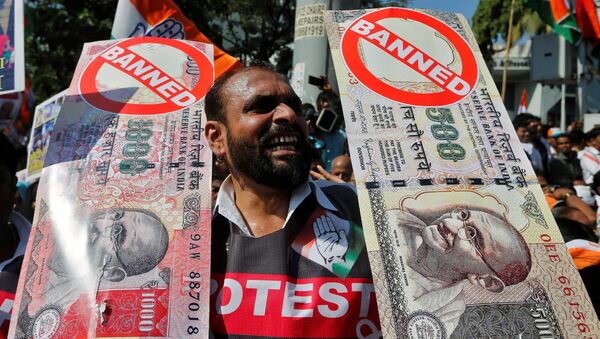Businesses in India can receive a 30-percent reduction on their tax bills for participating in cashless transactions, Finance Minister Arun Jaitley said Tuesday. Unfortunately only firms with cash inflows of greater than 20 million rupees (about $294,000) annually qualify for the tax break.
In a surprise move, Prime Minister Narenda Modi recently scrapped the 500 and 1,000 rupee notes, as part of India’s campaign to promote digital payment models. “If you use digital modes of transactions for payment, then you have to pay less tax this year,” Jaitley said.
But the official’s comments belie the fact that a whopping 90 percent of Indians rely on cash for day-to-day exchanges. A slew of smaller companies, farmers, and households cannot, or do not, use smartphones or bank accounts.
Jayan Bhandari, an institutional investment adviser, said in a recent interview that India’s war on the cash economy could be a slippery slope toward further government intervention. "In a very convoluted way, possession of gold for investment purposes will be made illegal," Bhandari told ProvenAndProbable. Bhandari previously argued that investors in India should expect "capital controls to follow" what he sees as a series of "new social engineering notifications."



